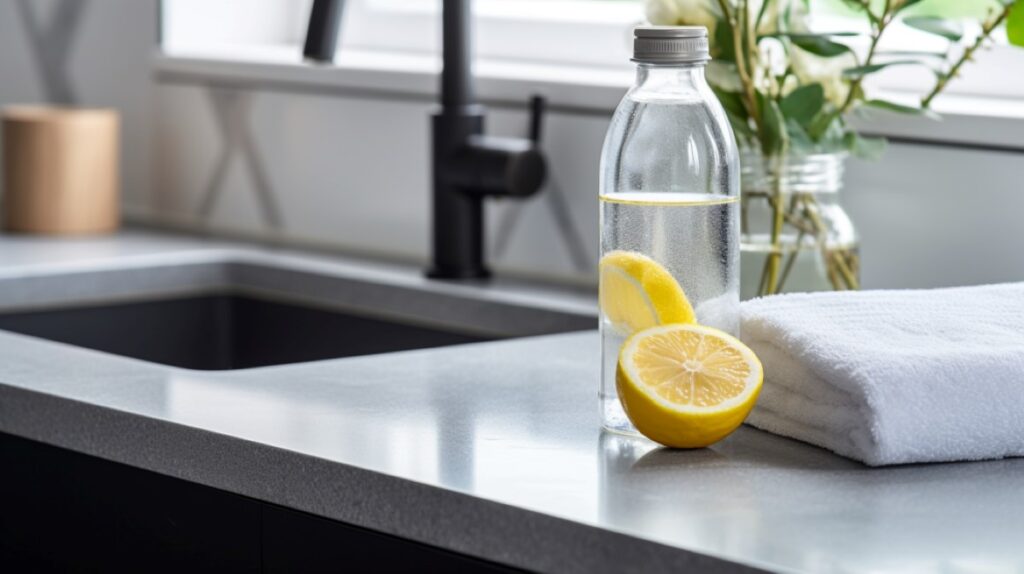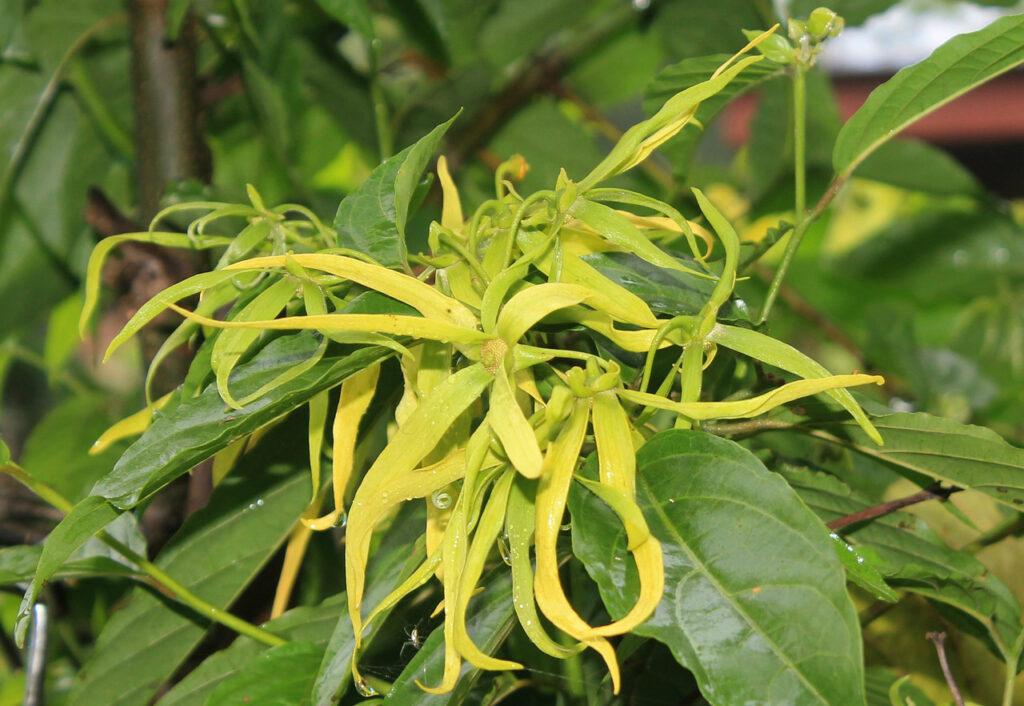Cleaning with Soda Water: 11+ Cleaning Methods, No Chemicals
Soda water has long been a staple in bars and kitchens for its refreshing fizz, but its utility goes beyond quenching your thirst. This ordinary beverage can be an effective cleaning agent, often overlooked in favor of commercial cleaners.
- Chemical Composition of Soda Water
- General Cleaning Applications of Soda Water
- Effective Techniques for Stubborn Stains
- Specialized Soda Water Solutions
- Laundry Applications of Soda Water
- Caring for Pets and Pet Accessories
- Eco-Friendly Cleaning Practices
- Cleaning with Soda Water FAQs
- How can vinegar enhance the cleaning properties of soda water?
- What are the benefits of using baking soda with soda water for cleaning?
- What is the effectiveness of soda water in removing common stains?
- Can soda water be used as a disinfectant, or should it be combined with other substances?
- How does soda water affect fabrics, and can it cause staining on clothes?
- Are there any precautions to consider when using soda water for cleaning purposes?
Its unique properties allow you to tackle various cleaning tasks around your home without resorting to chemicals that may be toxic. The carbonation in soda water helps to break down grime and dirt, making it easier to clean surfaces and objects.
When you use soda water for cleaning, you are choosing a non-toxic and safe method to keep your living space sparkling. It’s particularly useful for delicate tasks, such as cleaning jewelry, where harsh chemicals could cause damage. This simple, bubbly liquid can gently lift grease and dislodge dirt particles without the need for aggressive scrubbing.
It’s such a simple household item, yet it’s incredible because of how easily you can use it to clean anything from burnt food stuck on the bottom of a pot to your countertop.
Chemical Composition of Soda Water
Soda water, beneficial for various cleaning applications, primarily consists of water infused with carbon dioxide under pressure. This process creates carbonic acid, giving soda water its distinctive effervescence and slightly acidic nature, which is beneficial for cleaning tasks.
Understanding pH and Its Impact on Cleaning
pH is a measure of how acidic or basic a solution is on a scale from 0 to 14.
- Soda water typically has a pH between 3 and 4, making it slightly acidic.
- This acidity is effective in breaking down stains and mineral deposits that are alkaline in nature.
- Similar to vinegar, when you utilize soda water for cleaning, this low pH aids in dissolving grime and soap scum with greater efficacy than plain water.
Carbon Dioxide Gas and Its Cleaning Efficacy
The carbon dioxide gas in soda water doesn’t just add fizz; it plays a role in the cleaning process.
- When carbon dioxide is dissolved in water, carbonic acid forms, contributing to the soda water’s acidity and beneficial cleaning properties.
- This mild acid creates a reaction with certain stains, helping to lift them from surfaces.
- Moreover, the bubbles produced by the released carbon dioxide provide mechanical agitation, which can help in loosening dirt particles, making them easier to wipe away.
General Cleaning Applications of Soda Water
The above characteristics of soda water make it a versatile cleaning agent for various surfaces around your home. Incorporating it into your cleaning routine can revitalize fabrics and add a new shine to glass and metal surfaces.
Refreshing Fabrics and Upholstery
To clean grime on part of your fabric and upholstery, simply blot the area with soda water using a microfiber cloth. The fizzing action can help lift surface stains and refresh the material.
For tougher spots, a gentle scrub with a soft-bristled toothbrush or scrubber dampened with soda water can be effective. Always perform a spot test on an inconspicuous area first to ensure colorfastness.
Shine and Sparkle for Glass and Metal Surfaces
For glass surfaces with water stains, like if you’re cleaning a glass stovetop, spray soda water directly on the surface and wipe clean with a microfiber cloth, ensuring a streak-free finish. By the way, rubbing alcohol and vinegar is a great glass cleaner, too, if you need something a bit more powerful.
On metal and particularly stainless steel, apply soda water with a cloth and rub in the direction of the grain to polish and remove fingerprints or smudges. The carbonation can help dissolve grime, leaving a reflective shine. Imagine that clean, smudge-free stainless steel without using chemicals.
Effective Techniques for Stubborn Stains
When faced with stubborn stains in your home, incorporating soda water into your cleaning routine can be a game-changer. The carbonation provides a gentle yet effective means to tackle tough spots, working with the inherent properties of baking soda and the fizzing action to loosen and lift grime.
Leveraging Fizz for Grout and Tile Cleaning
To clean your tile and grout with soda water, start by generously spraying the area with undiluted carbonated water.
- The fizz helps the soda water penetrate into the grout lines. After letting it sit for a few minutes, take a brush and begin scrubbing in a circular motion.
- For enhanced cleaning power, make a paste of baking soda and soda water, apply it to the grout, and then scrub. This method not only dislodges dirt but can also brighten the grout.
- Step-by-Step Grout Cleaning:
- Spray soda water directly onto the grout.
- Allow it to sit and bubble for 5 minutes.
- Scrub with a stiff brush in circular motions.
- If needed, apply a baking soda and soda water paste for stubborn areas.
- Rinse with clean water and dry.
Removing Grease and Oil with Carbonated Water
Soda water is surprisingly effective against grease and oil stains.
- The carbonation breaks down the grease, making it easier to remove.
- For small stains on fabric, blot the area with soda water immediately and then launder as usual.
- For larger, tougher stains, such as on driveway concrete, pour soda water over the stain and let it fizz. After a few minutes, begin to brush the area and rinse away the residue.
Quick Guide for Grease Removal:
Fabric:
- Blot or spray the area with soda water.
- Run a normal wash cycle.
Concrete:
- Pour a liberal amount of soda water on the stain.
- Allow it to work for 5-10 minutes.
- Aggressively scrub, then rinse thoroughly.
Through careful application and a bit of elbow grease, soda water can be a valuable ally in your battle against stains.
Of course, it won’t clean everything since it’s not quite as powerful as detergents or other alternatives. That said, though, for recent simple stains, it can work wonders without the need to use chemicals.
Specialized Soda Water Solutions
Now, let’s look at a few more specialized ways to use soda water for cleaning.
Formulas for Kitchen Hygiene
- Oven cleaning: Create a paste using soda water and baking soda. Apply it to the interior of your oven, focusing on areas with baked-on food. Allow it to sit for an hour before scrubbing lightly with a non-abrasive pad and wiping clean.
- Grease removal: To clean greasy dishes, pour or spray soda water directly onto them. The bubbling action will help lift the grease, making it easier to wash away with dish soap and a sponge.
Multi-purpose kitchen cleaner with soda water:
- Combine equal parts of soda water and white vinegar.
- Transfer to a spray bottle.
- Use this solution to clean countertops and appliances or even as a mild drain cleaner by pouring it down the sink to help clear light blockages and deodorize.
Bathroom Cleaning with Soda Water
- Soap scum: Apply soda water directly to soap scum on shower doors or tiles. Wipe with a soft cloth and rinse.
- Mildew and hard water deposits: Spray soda water on affected areas, then wipe clean. For stubborn mildew, allow it to sit for several minutes before scrubbing with a brush. For hard water, regular applications may help to prevent buildup.
Use soda water to polish bathroom fixtures:
- Simply pour soda water onto the fixtures and wipe with a microfiber cloth for a streak-free shine.
- Add baking soda to make a paste for heavily stained areas.
Additional Soda Water Cleaning Hacks
The list of cleaning applications is almost endless. So, we’ll include just a few more below.
- Jewellery Cleaner: Soak jewelry in a mixture of soda water and mild dish soap to help loosen up grease and dirt. Check here for more detailed instructions.
- Enhancing Your Cleaners: Boost the effectiveness of your favorite cleaner by mixing in a bit of soda water to help penetrate grime and lift dirt with ease.
- Cookware Rescue: For scorched pans, soak them with soda water before scrubbing them to make the task easier.
By leveraging the natural cleaning power of soda water, you can effectively maintain the hygiene of your kitchen and bathroom with less reliance on traditional cleaners.
Laundry Applications of Soda Water
Using soda water in your laundry routine can give your garments a refreshing clean, effectively working against tough stains. This natural and non-toxic solution is gentle on most fabrics and can significantly enhance the cleaning power of your washing machine.
Enhanced Cleaning Power for Laundry
If you recently spilled something on your clothing that’s likely to stain, immediately spray some soda water on it (Dawn dish detergent is great for this, too, by the way) to prevent the stain from setting.
- Pre-treatment: Directly apply soda water to stains on your clothes before tossing them into the washing machine. The bubbles help to break down the stain, making it easier for them to be removed in the regular wash cycle.
- In the Wash: Pour a cup of soda water into the washing machine during the wash cycle to target and remove stains more effectively.
Keep in mind that while soda water is non-toxic, it’s best to use it on colorfast and durable fabrics to avoid any potential damage. Always conduct a spot test if you’re unsure.
Caring for Pets and Pet Accessories
When maintaining a pet-friendly home, it’s essential to consider safe and effective methods for neutralizing pet odors and cleaning pet-related stains.
Neutralizing Pet Odors
Your pet’s favorite spots can often become a source of unpleasant smells. Soda water is a simple yet effective solution for neutralizing pet odors. For instance, you can freshen up your pet’s bedding by lightly spritzing it with soda water and allowing it to air dry.
However, it is essential to ensure the bedding’s material can handle the moisture without being damaged. You don’t need to drench it with soda water; just a few spritzes will do.
- Carpet odors: Gently blot or spray the affected area with soda water and let it dry.
- Upholstery: Test a small area first, then apply sparingly to avoid over-saturation.
Cleaning Pet-Related Stains
Accidents happen, and when they do, soda water can be your go-to for cleaning pet-related stains. For the same reasons we mentioned earlier, it’s great to use for lifting stains from pets.
- Fresh stains: Blot up as much as possible, then dab with soda water. Blot again with a clean towel.
- Set-in stains: Apply soda water, let it sit for a short period, then scrub gently with a brush. If the material can be machine washed, spray it with soda water to loosen the stains, then wash it as normal.
Remember, always conduct a spot test in an inconspicuous area to ensure that the carpet or fabric does not discolor or fade. By using these straightforward, non-toxic cleaning methods, you’ll keep your home clean and safe for both you and your furry friends.
Eco-Friendly Cleaning Practices
In this section, you’ll learn about the advantages of shifting to non-toxic cleaners and how to create a few additional cleaning solutions with soda water.
Benefits of Non-Toxic Cleaners
Non-toxic cleaners are a safer option for both your health and the environment. Unlike many conventional cleaning agents that contain harsh chemicals, non-toxic alternatives such as vinegar, lemon, or baking soda are natural and biodegradable.
These substances don’t release harmful fumes or leave behind toxic residues, making them a responsible choice for your home.
- Healthier indoor air quality: No volatile organic compounds (VOCs) to pollute your home.
- Safety: Reduced risk of chemical burns or poisoning.
- Environmental impact: Minimal, as these ingredients are sustainable and cause less pollution.
Homemade Cleaning Agents with Soda Water
Mixing it with other eco-friendly ingredients can enhance its cleaning power. Here are two simple mixtures you can create:
- General Surface Cleaner:
- Combine soda water with a squirt of lemon juice for added fragrance and degreasing properties.
- Use this mixture for countertops, appliances, and even glass surfaces.
- Deep Cleaning Scrub:
- Mix soda water with baking soda to form a paste.
- Apply it to tough stains for a gentle abrasive action.
Any cleaning solution using soda water is completely customizable. Add a few drops of your favorite essential oils for a personalized fragrance, and add lemon juice or vinegar to increase the acid for tougher cleanups, as we’ve seen, when it’s quite versatile, too, effective on multiple surfaces, from stainless steel to ceramic tiles.
Simple changes in your cleaning routine can considerably impact your well-being and reduce your exposure to unnecessary cleaning chemicals for simple messes.
Again, we rarely use detergents like Dawn and even strong chemicals like bleach at times. But, 99% of the time, simple hacks like soda water, vinegar, baking soda, etc., are more than sufficient.
It is such a simple item, yet it can even be used for basic cleaning around the house. Again, it won’t tackle everything, but that’s not the point.
The point is this: What simple household, non-toxic items can you use to clean simple messes around the house instead of using traditional chemical cleaners? Soda water to the rescue!
Cleaning with Soda Water FAQs
How can vinegar enhance the cleaning properties of soda water?
Vinegar, when mixed with soda water, creates a more potent solution for cutting through grease and mineral deposits. This is due to vinegar’s acidity, which amplifies soda water’s cleaning capabilities.
What are the benefits of using baking soda with soda water for cleaning?
Combining baking soda with soda water for cleaning purposes can help in scrubbing away tough grime and neutralizing odors. Baking soda provides an abrasiveness to scrub away dirt and grease. Also, it enhances the fizzing action of soda water for a deeper clean.
What is the effectiveness of soda water in removing common stains?
Soda water is particularly effective in lifting and lightening non-greasy stains like wine or fruit juices. Its carbonation helps to loosen particles, making it easier to remove stains from fabrics and surfaces.
Can soda water be used as a disinfectant, or should it be combined with other substances?
While soda water has cleaning properties, it does not disinfect on its own. To kill germs, you should combine them with a disinfectant like hydrogen peroxide or a specifically designed cleaning agent that performs well against bacteria and viruses.
How does soda water affect fabrics, and can it cause staining on clothes?
Soda water is generally safe for most fabrics and doesn’t cause staining. In fact, it’s often used to help remove stains from clothes. However, you should always test a small, inconspicuous area first before treating any stain.
Are there any precautions to consider when using soda water for cleaning purposes?
Yes, soda water should not be used on surfaces or materials that are sensitive to water or acidity. It’s advisable to use it in a well-ventilated area and to wear gloves if you have sensitive skin or are combining it with other cleaning agents for more rigorous cleaning tasks.


